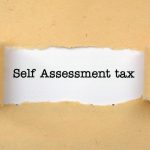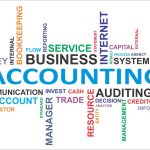Dividends – What are the tax implications?
One of the ways that the directors of small businesses can reduce their tax liability is by drawing down dividends instead of paying themselves a salary. When a small business earns a profit, the money can be retained in the company reserves, or it can be distributed among the shareholders as a dividend. The dividend is paid as a fixed, equal amount per share, so that all shareholders receive a sum in proportion to the stake they hold in the business.
Before paying dividends – a checklist
Before paying dividends, your business needs to be able to prove that you have generated a profit. It is very important then that your company’s financial records are detailed enough to show income and expenditure.
Second, your business needs to convene a board meeting at which the directors will discuss the current financial situation and decide whether shareholders should be paid a dividend. It is extremely important that whether a dividend is paid or not, full and accurate minutes are kept of the meeting should HMRC query payments in the future.
How to pay dividends
If the board of directors decides that a dividend should be paid, a dividend voucher should be issued alongside the payment. The sum can be paid to the shareholder personally, or credited to the director’s loan account – just make sure you seek advice from your accountant about the specific conditions governing director’s payments.
Dividend payments are a careful balancing act between incentivising shareholders and ensuring there is enough cash available to maintain healthy operations. By taking too much cash out of the reserves, your business may find it hard to meet its own financial obligations.
Minimising tax obligations
For small businesses with a limited number of directors and shareholders, maximum tax efficiency can be realised by paying dividends up to the higher tax threshold. This does of course assume that the shareholder does not have any additional sources of income that may take them over that limit.
Most accountants will recommend that small business owners pay shareholders at least up to the higher rate threshold (profits allowing) to avoid unwanted scrutiny from HMRC and to avoid issues where you may end up paying more tax than you should over the course of years.
Paying dividends and maintaining cash reserves
Where your business needs to pay dividends but there are concerns about cash reserves, shareholders may choose to loan their payment back to the business. They then receive a credit in their director’s loan account which can be repaid when finances are more healthy.
Dividends can be quite complex, and are subject to regular changes in taxation legislation. To stay on top of your obligations without negatively affecting cash flow, you should seek professional advice from your accountant who will not only advise on how best to pay dividends, but also how tax liabilities can be legitimately and effectively reduced.




